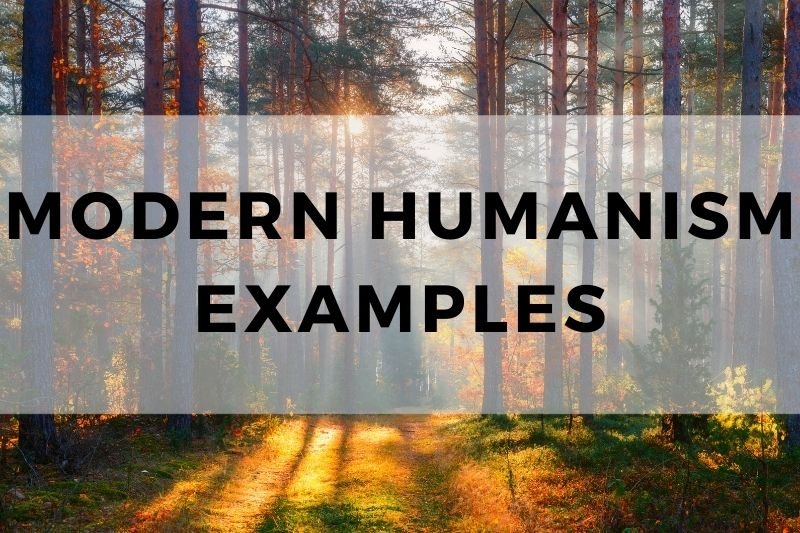
Humanism has shaped much of modern society and culture. At its core, it focuses on human dignity, rights, and the well-being of all people. Modern humanism values reason, compassion, and progress. It challenges traditional beliefs that limit human potential and advocates for equality.
In today’s world, humanism influences many areas, from politics to healthcare. It pushes for reforms that support human rights, social justice, and scientific advancement. This article will explore key examples of how humanism appears in modern society and culture, highlighting its impact on our lives today.
Examples of Humanism in Modern Society and Culture
#1. Universal Human Rights Advocacy
Humanism plays a central role in advocating for universal human rights. It emphasizes that every individual, regardless of background, deserves equality and dignity. Human rights organizations, such as Amnesty International, work tirelessly to protect these rights globally. They focus on ending abuses like torture, discrimination, and slavery. Through education and action, they raise awareness about the importance of human rights for all people.
#2. Humanitarian Aid for Poverty Relief
Humanism inspires efforts to alleviate poverty. Charities and non-profit organizations provide essential aid to the most vulnerable populations. Whether through food, shelter, or education, these efforts aim to improve lives and offer hope. Humanitarian aid is rooted in the belief that all humans deserve a fair chance to live with dignity. By addressing basic needs, humanism works to reduce suffering and create lasting change.
#3. Secular Education and Critical Thinking
Humanism supports secular education systems that encourage critical thinking. It promotes the idea that education should be based on reason, evidence, and inquiry. Public schools and universities aim to teach students how to think critically, not just memorize facts. This approach empowers individuals to make informed decisions and contribute to society. Humanism values knowledge and the continuous pursuit of truth.
#4. Movements for Equality and Justice
Modern humanism is at the heart of many social movements focused on equality and justice. It drives the fight for gender equality, racial justice, and LGBTQ+ rights. These movements challenge discriminatory systems and demand equal treatment for all. From the Civil Rights Movement to today’s Black Lives Matter, humanism supports actions that create a more inclusive society. It advocates for equal opportunities for every individual, regardless of their identity.
#5. Mental Health Awareness Efforts
Humanism highlights the importance of mental health as a key aspect of overall well-being. Efforts to reduce stigma and promote mental health care are widespread today. Mental health organizations raise awareness about issues such as depression, anxiety, and PTSD. They stress that mental health deserves the same attention as physical health. Through support, education, and advocacy, humanism works to ensure that everyone has access to the care they need.
#6. Ethical Consumerism Practices
Humanism encourages ethical consumerism, where individuals make choices based on morality. This includes supporting businesses that prioritize environmental sustainability, fair wages, and animal rights. Ethical brands focus on transparency and social responsibility. Consumers are increasingly aware of how their purchases impact society and the planet. Humanism supports the idea that individuals should consider the consequences of their consumption habits, pushing for a market that values people and the planet over profit.
#7. Public Health Campaigns
Humanism is evident in public health campaigns aimed at improving health outcomes for all people. These campaigns promote preventive measures, vaccinations, and healthy living practices. Initiatives like anti-smoking ads or campaigns against obesity focus on empowering people to make healthier choices. They also work to address health inequalities, ensuring that everyone has access to care and information. Through education and outreach, humanism advocates for the well-being of every individual.
#8. Scientific Advancements in Medicine
Humanism has driven significant advancements in medicine, especially in the areas of medical ethics and patient care. It supports research that seeks to improve health, extend life, and reduce suffering. Medical innovations, such as vaccines, organ transplants, and cancer treatments, are rooted in humanist values. These advances focus on the betterment of human lives. Humanism also emphasizes the need for ethical standards in medicine, ensuring that science serves humanity’s best interests.
#9. Arts Promoting Empathy and Change
Humanism values the arts as a powerful tool for promoting empathy and social change. Literature, film, music, and visual art help people understand diverse experiences and perspectives. The arts can challenge societal norms and bring attention to injustices. They inspire action, provoke thought, and encourage dialogue. Through creativity, humanism seeks to connect people on a deeper level, fostering understanding and pushing for a more compassionate world.
#10. Democratic Political Systems
Humanism supports democratic political systems that emphasize the value of individual rights and collective decision-making. These systems promote the idea that people should have a voice in their government. Democracy allows for the protection of rights and liberties, ensuring that all citizens are treated with fairness and respect. Humanism champions the principles of free speech, voting, and political participation. It believes that a just society is one where individuals have the power to shape their own future.
Closing Thoughts
Modern humanism continues to shape society in profound ways. From advocating for human rights to supporting scientific progress, its principles are evident in many aspects of our daily lives. Humanism encourages a world where reason, compassion, and equality guide our actions.
By promoting social justice, mental health awareness, and ethical choices, it aims to create a more just and humane world. As society evolves, humanism will remain a driving force, challenging us to improve and work towards the betterment of all people. Its influence will continue to inspire positive change across cultures and generations.
